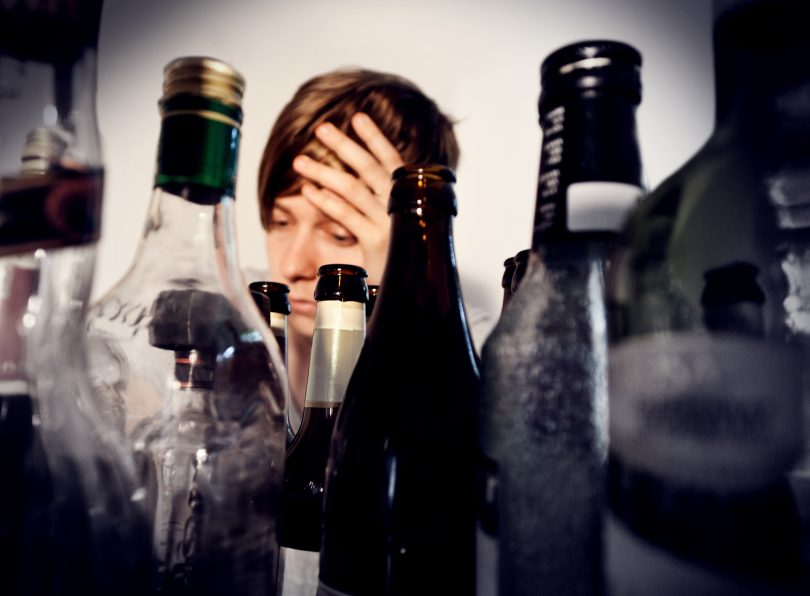Do you have a friend who’s quitting alcohol or are you yourself trying to quit? Does the concept of alcohol withdrawal make you feel nervous or afraid?
You’re not alone; as of 2016, Alcoholics Anonymous had over 2 million members.
However, studies show only 1/3 of alcoholics have a full recovery from alcoholism. How can you be sure that in your journey to self-betterment, you can be a part of the successful 33%? How long does alcohol withdrawal last and how can you survive through it?
To help you go through this, we have put together an alcohol withdrawal timeline. With this, you can better prepare yourself for the coming symptoms of withdrawal.
How Long Do Alcohol Withdrawals Last?
The clock for the alcohol detox timeline usually starts 8 hours after your last drink and it’s categorized into 3 stages, according to how severe your dependency on alcohol is. These symptoms will show within the first 5-7 days after that 8-hour period passed.
That’s right, there are 3 stages during your withdrawal from alcohol, and delirium tremens. These stages come within the first week of withdrawal. However, their effects begin to wane and become much more manageable after that first period.
In short, the length of withdrawal can vary depending on how dependent you were before you decided to stop. But after a week, a slow climb starts wherein you can start feeling better as the symptoms become bearable little by little. The first step is to go through detox.
Starting the Detox
Before any of the stages occur, you’ll have a small window of free time. You can use this time to better prepare yourself and your body for what’s to come. This is the detox period, where you can use mild medications and herbal products to help you slowly get the alcohol out of your system.
Buy medication to prepare for the more common symptoms of withdrawal. Most over the counter drugs can help with the mild symptoms that are to come. Always make it a point to consult a doctor before purchasing any withdrawal medication.
Stage 1 of the Alcohol Withdrawal Timeline
This stage of alcohol withdrawal occurs when your addiction to alcohol is mild. Although the symptoms here are the mildest among the 3 stages, it can still be alarming when you experience them.
The symptoms in this stage are:
- Anxiety
- Insomnia
- Nausea
- Appetite loss
- Heart Palpitations
- Mood swings
- Fatigue
- Tremors
- Clouded thinking
- Sweating
People experiencing these, for the most part, get scared and go back to drinking in an instant.
What We Can Do About This
For people experiencing stage 1 symptoms, a supportive environment does big things. Constant assurance helps with the renewing of resolve to the party involved.
Being positive also helps, as the presence of a positive factor during withdrawal gives a feeling of companionship, as withdrawal is an ordeal best gone through together.
Stage 2 of Withdrawal
Around 24-72 hours after the beginning of withdrawal, stage 2 symptoms start to appear if you’ve been a moderate drinker. These symptoms are more severe than those in stage 1 and require more attention to handle.
People in this stage may experience:
- An increase in blood pressure, respiration, and body temperature
- Increased sweating
- Irregular heartbeat
- Irritability
- Confusion
As these symptoms appear, chances of relapse increase, and increased care if required to maintain integrity.
What We Can Do About This
People experiencing increased blood pressure may have to get prescription medication to handle that, as well as those who are up against seizures and hallucinations.
When this stage in the alcohol detox timeline manifests, it’s a better idea to limit the contact you have with the involved parties as to not irritate them even further.
Set up a safe, quiet room with good lighting for them to settle in. Occasional visits only to bring them food and beverage help give them peace of mind while they go through this stage.
Stage 3 of Withdrawal
Stage 3 in the withdrawal process pose the most severe symptoms, which are:
- Fever
- Hallucinations
- Seizures
- Sever Confusion
- Agitation
Out of all the drinkers, only 30% of those recovering experience stage 3 in the alcohol detox timeline. These are the ones who are heavy drinkers, or those who drank at an early age and got hooked immediately.
What We Can Do About This
For those experiencing stage 3 alcohol withdrawal, it is best that they seek help from professionals. Some of the symptoms could last for weeks and may even become permanent if left unchecked.
There are also places that help people cope with the symptoms of withdrawal all around the United States. These places offer a safe space for individuals having a tough time with withdrawal.
Delirium Tremens
Delirium Tremens is the most severe symptoms one can experience during withdrawal.
This often appears after 48-72 hours after beginning detox. It occurs when someone consumes alcohol on a near daily basis, even worse if they seldom eat before they drink alcohol. Also, they’re caused when someone with a history of alcoholism sustains a head injury, became ill or became infected with something.
This stage increases the severity of all the symptoms in the last stage, often leading to a heart attack an even the death of an individual.
What We Can Do About This
People experiencing delirium tremens are at risk of becoming violent, and they often warrant the use of sedatives when they become out of control. Isolation and constant surveillance is the best approach to people who are experiencing this.
In order to prevent someone from getting delirium tremens, there is a medication that one can administer while they’re withdrawing. Benzodiazepines are the most form used medication on people who are in the process of detoxing alcohol.
Be prepared, however, for the possibility that you or your loved one will need to get admitted to a hospital or a rehab center when the symptoms become worse.
What Comes After
After a week into the withdrawal, you’ll notice that the symptoms will be less severe, whatever stage the individual is in. It’s an easier path than before after the first week, but it is still recommended to keep a constant watch on the parties involved
Prepare Yourself and Start Betterment Now
Understanding the alcohol withdrawal timeline is only the first part of alcoholism recovery. The next step from here is to consult a doctor and put these words into action.
Alcoholism is a scary thing and withdrawal is even scarier. But don’t worry, you’re not alone in this. We can help you find a safe space so you can start your journey in self-preservation and betterment.
Visit our page and contact us today at (877) 322-2450 to see if there are places close to you that you’d like to go to.















